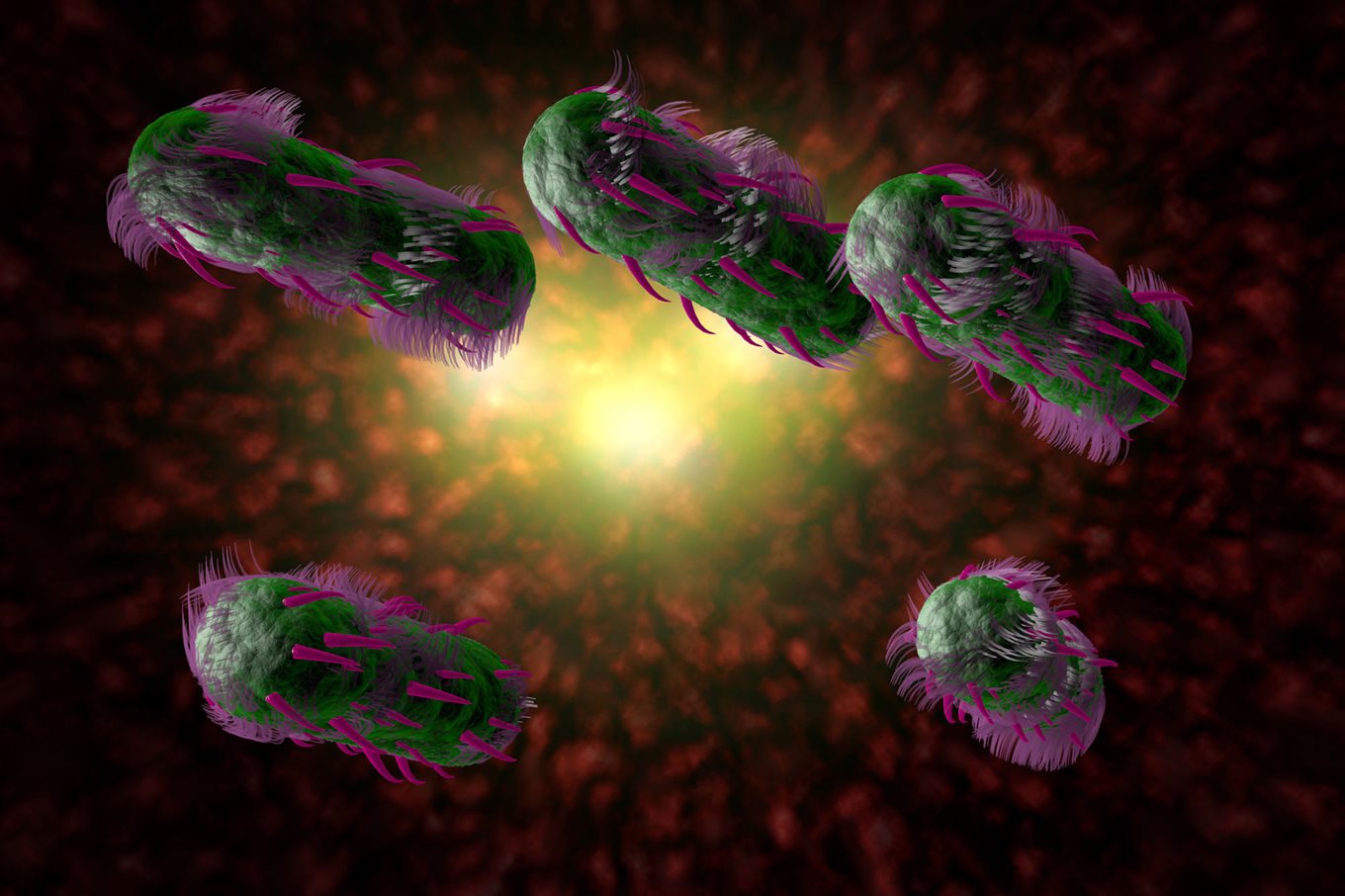E. coli

Many strains of E. coli are harmless to humans, but some can cause serious illness.
E. coli is a large group of bacteria that can be found in the guts of animals and humans. Some strains of E. coli can cause serious disease in humans, while causing no illness in these animals.
How can I be exposed to this infection?
E. coli can spread to our food through the faeces of cattle and sheep. You can be infected by:
- Consuming any meat, vegetables, milk or water that has been contaminated with animal faeces.
- Eating undercooked minced meat, including such as eating rare/undercooked beef burgers.
- Poor handwashing by another person who is infected and therefore causing person to person spread.
- Drinking unpasteurised milk or eating unpasteurised cheese.
- Direct contact with animals.
Toddlers are especially likely to spread the bacteria, with family members and playmates at high risk of becoming infected.
How do I know if I have an E. coli infection?
Some people may be infected with E. coli without showing any symptoms. However, usually the symptoms include:
- Abdominal pain
- Cramps
- Nausea
- Vomiting
- Bloody diarrhoea (or sometimes non-bloody diarrhoea)
Fever is not usually a symptom of this type of food poisoning.
How can an E. coli infection be treated?
Most people recover without any treatment in 5 to 10 days. However, in some people the infection can cause kidney failure, so if you develop any symptoms you should contact your family doctor. Those most at risk are children under 5 years old, pregnant women, the elderly and people with an already weakened immune system, such as those undergoing cancer treatment.
How can I avoid getting infected?
- Always cook minced meat products thoroughly, until there is no pink meat left, the juices run clear and it is piping hot all the way through.
- Wash hands thoroughly with warm soapy water before and after preparing raw meat and before touching anything else.
- Avoid cross-contamination by never letting raw meat come into contact with ready-to-eat food. Wash all chopping boards, work surfaces and utensils with hot soapy water after preparing raw meat.
- Always keep raw meat in the fridge or freezer.
- Wash raw fruit and vegetables before eating.
- Don’t drink unpasteurised milk or eat unpasteurised cheese.
- Always drink water from a safe source, such as treated tap water.
- Always wash your hands thoroughly with warm soapy water before and after preparing foods, after handling raw foods, after using the toilet, after changing babies’ nappies and after direct contact with animals.

